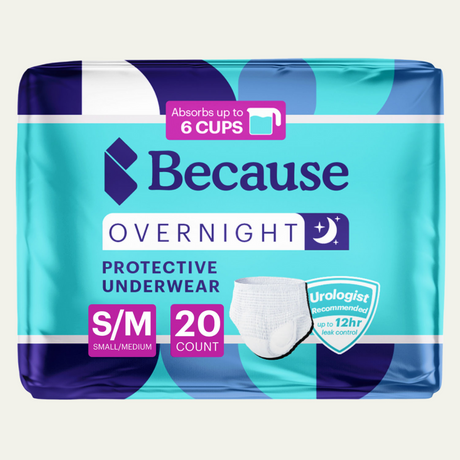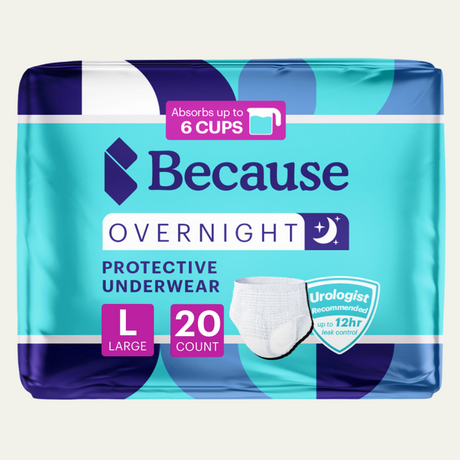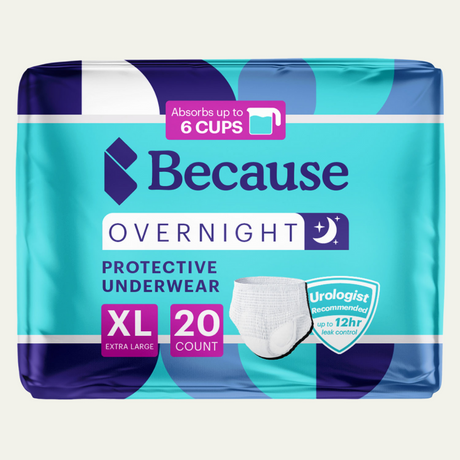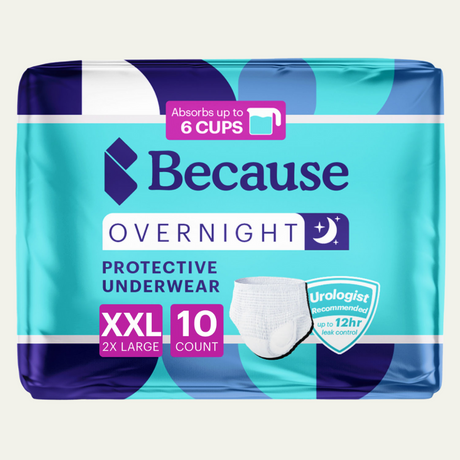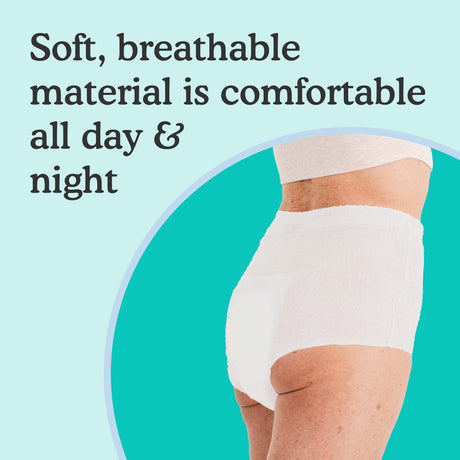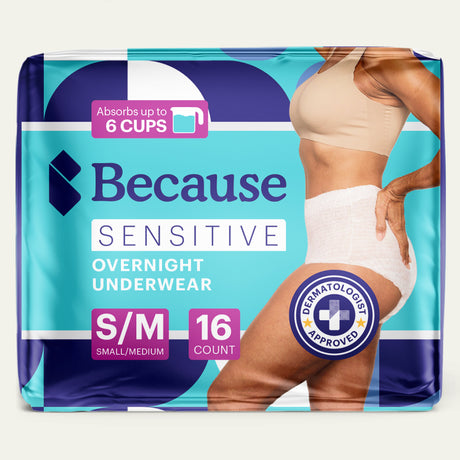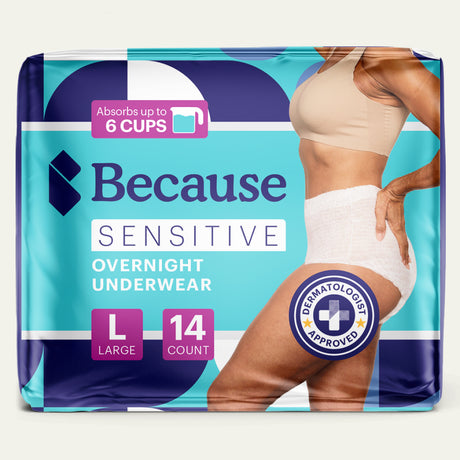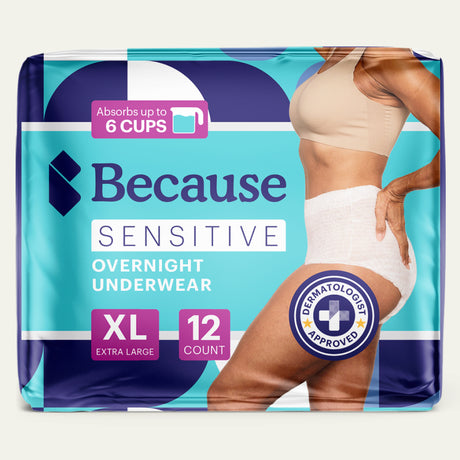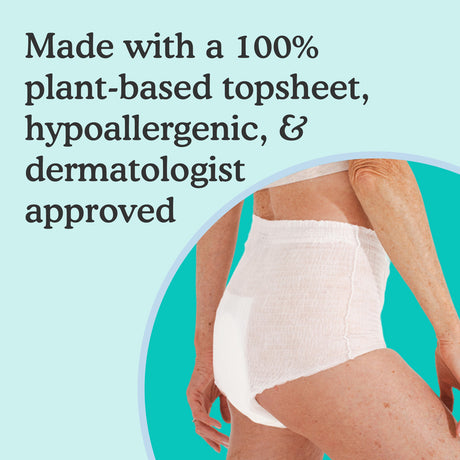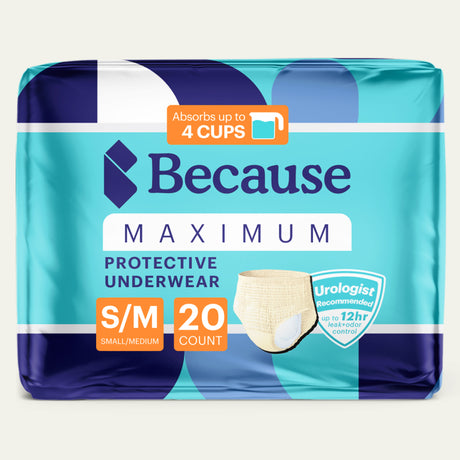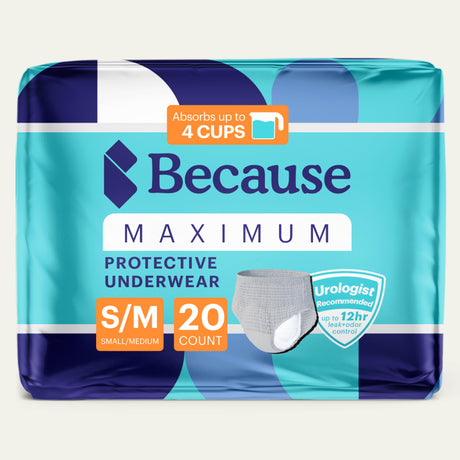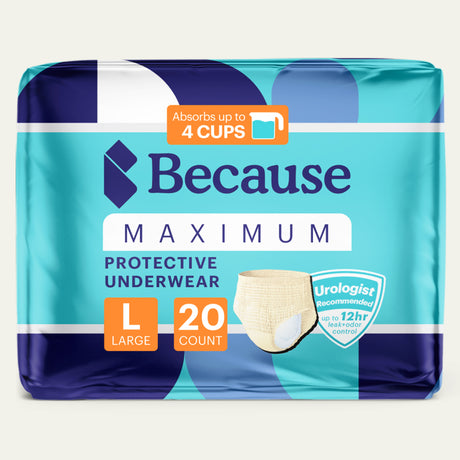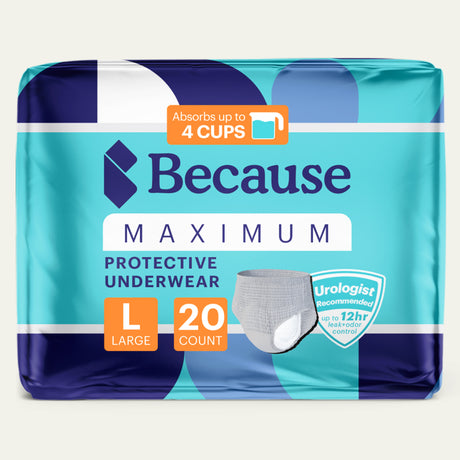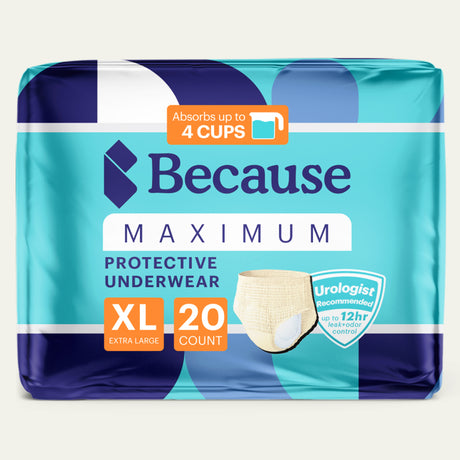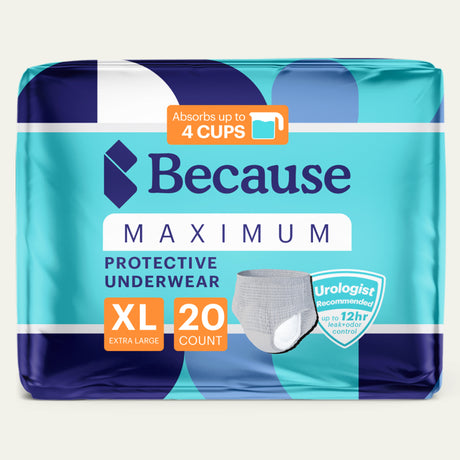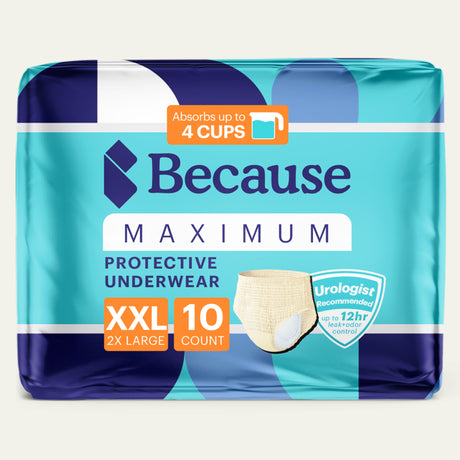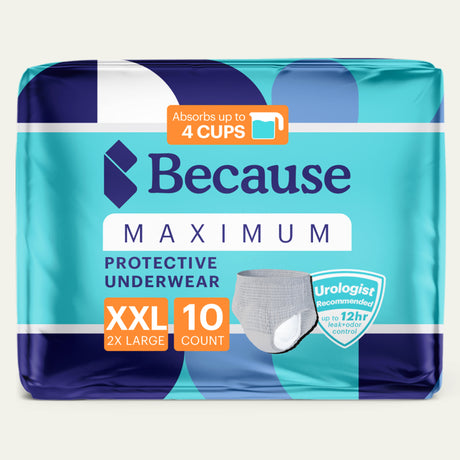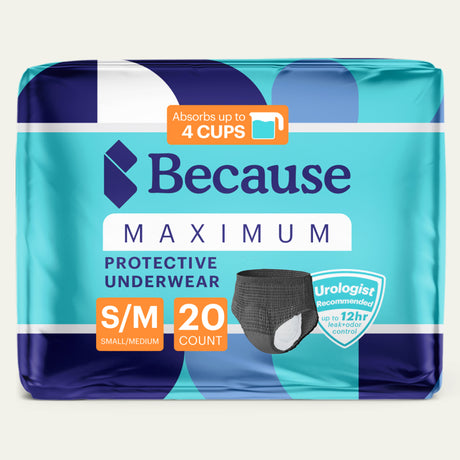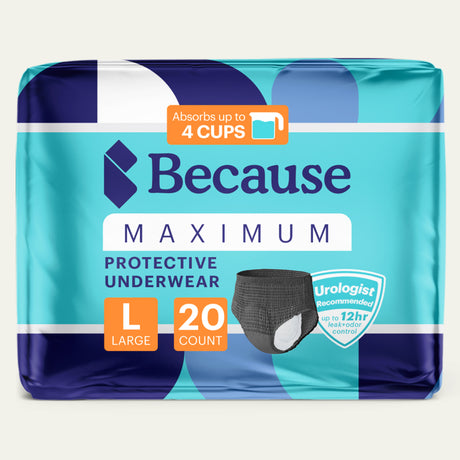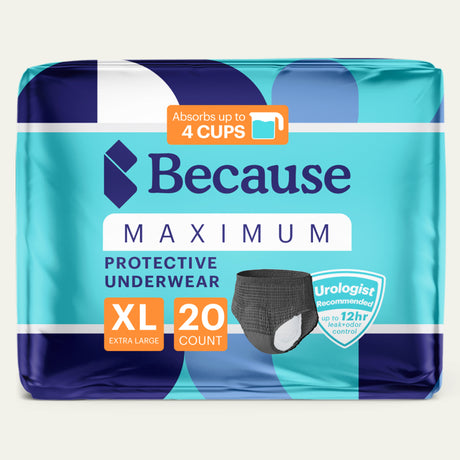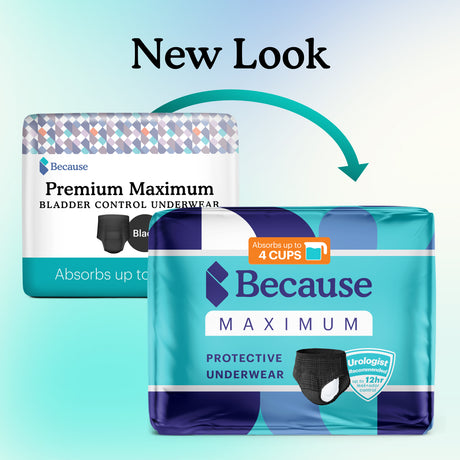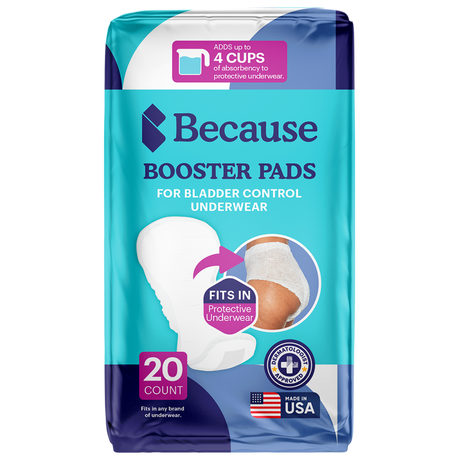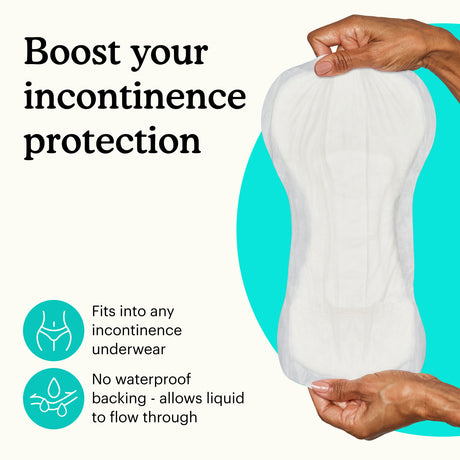Parenthood is a whirlwind of joy, exhaustion, and countless unexpected moments. Amidst the chaos of diaper changes, bedtime stories, and first steps, many parents face a hidden challenge: incontinence. Whether it's a little leak when you laugh or a sudden, urgent need to go, bladder control issues can add another layer of complexity to the already demanding job of raising a family. It's a topic many find embarrassing to discuss, but the truth is, incontinence during pregnancy and postpartum is incredibly common. This isn't something you have to suffer in silence. This guide offers practical advice, helpful resources, and a supportive community to help you understand, manage, and even overcome incontinence, so you can focus on what matters most: enjoying the precious moments of parenthood.
Key Takeaways
- Understanding your incontinence type helps you find the right solutions. Whether it's stress, urge, or mixed incontinence, knowing the difference guides you toward the most effective products and management strategies. This knowledge empowers you to address your specific needs and minimize disruptions.
- Open communication creates a supportive environment for managing incontinence. Talking with your partner, connecting with other parents, and consulting your healthcare provider can significantly improve your experience. Honest conversations reduce feelings of isolation and help you find the resources and support you need.
- Prioritizing self-care is essential for navigating incontinence as a parent. Balancing your physical and emotional well-being allows you to better manage the challenges of incontinence while caring for your family. This includes finding healthy coping mechanisms, connecting with others, and making time for activities you enjoy.

Are Bladder Leaks Common During Pregnancy and Parenthood?
Experiencing bladder leaks during pregnancy and after childbirth is surprisingly common. It's called incontinence, and it can range from occasional small leaks to a more frequent, sometimes urgent, need to urinate. Several factors contribute to this. During pregnancy, the growing uterus places pressure on the bladder. Hormonal shifts during this time can also affect bladder control. Childbirth itself can weaken pelvic floor muscles, which are essential for supporting the bladder and urethra. Incontinence can affect both bladder and bowel control, sometimes simultaneously.
While common, incontinence isn't something you simply have to accept. It can significantly impact daily life, making activities like exercising, laughing, or even just getting through the day a source of anxiety. Many women feel embarrassed to discuss it, but it's crucial to remember you're not alone. A significant number of pregnant women experience incontinence, and effective management strategies exist. Understanding the different types of incontinence is the first step toward finding the right solutions and regaining control. Knowing the facts and available resources empowers you to address this challenge and focus on enjoying pregnancy and parenthood.
Types of Incontinence & Their Daily Impact
Understanding the type of incontinence you're experiencing can help you find the right management strategies. Here's a look at the most common types and how they can affect your day-to-day life as a parent:
Stress Urinary Incontinence (SUI)
Stress urinary incontinence (SUI) happens when pressure on your bladder—from things like coughing, sneezing, laughing, or physical activity—causes leaks. As a parent, this can mean little leaks during playtime with your kids, or feeling anxious about attending their school events. It's the most common type of incontinence during pregnancy, with many women experiencing it for the first time during or after pregnancy. This doesn't mean it's something you just have to live with. Effective management strategies can make a real difference.
Urge Incontinence
Urge incontinence is marked by a sudden, overwhelming need to go, followed by an involuntary loss of urine. This can make everyday tasks challenging. Imagine having to constantly interrupt story time to rush to the bathroom, or worrying about making it through your child's soccer game without an accident. While stress incontinence is more prevalent during pregnancy, urge incontinence can also occur, sometimes in conjunction with SUI. This can create a complex set of symptoms that impact your quality of life.
Mixed Incontinence
Mixed incontinence is when you experience both stress and urge incontinence. This combination can be particularly tricky to manage, as it requires addressing both the pressure-related leaks and the sudden urges. It's not uncommon for women to have mixed incontinence, especially during and after pregnancy. The good news is that even with this dual challenge, there are ways to regain control and minimize the impact on your daily routines and emotional well-being. Daytime incontinence is a significant issue for many women, and understanding the different types is the first step toward finding the right solutions.
Managing Incontinence Effectively
Managing incontinence as a parent doesn't have to be overwhelming. With the right strategies, you can navigate these challenges and focus on enjoying time with your family. Here's how:
Choose the Right Protective Wear
Finding the right incontinence products is crucial for comfort and confidence. Think about your absorbency needs—are you dealing with light leaks or a heavier flow? Consider the style too. Because offers a range of options, from incontinence underwear designed for discretion to liners and pads for added security. The right product can make a real difference in how you feel throughout the day. For new moms, postpartum bleeding adds another layer of complexity. Choosing products specifically designed for this period can be especially helpful, as incontinence affects many women during and after pregnancy, with stress incontinence often beginning during this time.
Implement a Pelvic Floor Exercise Routine
Strengthening your pelvic floor muscles can significantly improve bladder control. These muscles support your bladder and urethra, and regular exercises can help prevent leaks. Even simple Kegels can be done discreetly anytime, anywhere. Try squeezing these muscles as if you're stopping the flow of urine, holding for a few seconds, and then releasing. Repeat this several times throughout the day. Consistency is key. While living with incontinence can be tough emotionally, coping strategies like pelvic floor exercises can empower you to manage the condition and its impact on your life.
Maintain Proper Hygiene & Comfort
Good hygiene practices are essential for managing incontinence. Because offers incontinence wipes specifically designed for gentle cleansing and skin protection. These wipes can help you feel fresh and comfortable throughout the day, especially when changing incontinence products. Dealing with leaks can be physically challenging, from needing quick bathroom access to changing clothes or bedding, as discussed in this article on the social and emotional challenges of incontinence. Having the right products on hand can simplify these tasks and make them less disruptive.
Manage Hydration & Schedule Bathroom Breaks
Staying hydrated is important for overall health and can also play a role in managing incontinence. While it might seem counterintuitive, restricting fluids can worsen bladder control. Aim for consistent fluid intake throughout the day, avoiding large amounts at once. Scheduling regular bathroom breaks can also help prevent accidents. Try going to the bathroom every two to three hours, even if you don't feel the urge. This can help train your bladder and reduce the likelihood of leaks. Daytime incontinence is a common issue, affecting even children, so adapting your hydration and bathroom habits can be a valuable tool for managing it effectively.

Talking About Incontinence
It's natural to feel isolated when dealing with incontinence, but open communication can make a world of difference. Talking about it can feel awkward at first, but it's the first step toward getting the support you need and feeling more confident. Here's how to approach these conversations:
Talk Openly with Your Partner
Honest conversations with your partner are key. Start by expressing your feelings and concerns without fear of judgment. Creating this safe space for open dialogue helps you navigate incontinence together. Reassure each other that incontinence is a common challenge, affecting people of all ages. Talking openly strengthens your bond and helps you both adjust.
Build a Supportive Network
Connecting with others who understand what you're going through can be incredibly helpful. Consider joining an online support group or forum. Online platforms are great resources for finding a community and getting practical advice. Knowing you're not alone can significantly reduce feelings of isolation and empower you to live a fuller life.
Join one of our private support groups today!
Click here to join our Women’s Incontinence Support Group
Click here to join our Men’s Incontinence Support Group
Involve Healthcare Providers
Don't hesitate to talk to your doctor or other healthcare providers. They can offer medical advice, suggest treatment options, and connect you with additional resources. Open communication with your healthcare team is essential for managing incontinence effectively. They can also provide guidance and support for your family, helping everyone understand and adapt.
Parent Confidently While Managing Incontinence
Parenting has its own unique joys and challenges, and managing incontinence adds another layer to navigate. It's important to remember that you're not alone and that with the right approach, you can confidently parent while managing your bladder health. This section offers practical advice for addressing concerns, maintaining your parental role, and creating a supportive home environment.
Address Concerns About Protective Garments Around Children
It's understandable to feel a little anxious about your children seeing or asking about incontinence products. Remember, kids are naturally curious. If they happen to see your protective underwear or other supplies, honesty and simplicity are key. For younger children, a brief explanation like, "These are special underpants that help me stay dry," is often enough. Interestingly, incontinence isn't just an adult issue. For older children, you can provide a slightly more detailed explanation, emphasizing that everyone's bodies work differently and sometimes need a little extra support. The goal is to create an open and accepting environment where these topics aren't taboo.
Maintain Your Role as Protector & Parent
Incontinence shouldn't define your role as a parent. While it might require some adjustments to your routine, it doesn't diminish your ability to protect and care for your children. Shield Healthcare highlights the importance of safety in the home, especially when you need to quickly get to the bathroom. Simple precautions like keeping pathways clear and ensuring good lighting can prevent falls. Remember, taking care of your physical well-being is essential to being the best parent you can be. Managing your incontinence effectively allows you to stay present and engaged with your children. Exploring coping strategies can help you address the emotional challenges of incontinence, empowering you to maintain your protective role.
Create a Supportive Home Environment
A supportive home environment benefits everyone, especially when navigating a health condition like incontinence. Open communication with your partner, as discussed in this article on incontinence and relationships, is crucial. Sharing your feelings and concerns can foster understanding and create a sense of teamwork. Creating a supportive environment also extends to your children. This guide for parents and caregivers emphasizes the importance of understanding and acceptance. This can involve practical steps like having extra clothes readily available and ensuring easy access to bathrooms. Building a supportive community, as discussed here, can provide emotional comfort and strengthen your resolve to live a full life while managing incontinence. Remember, creating a positive and accepting atmosphere at home empowers you and your family to navigate this challenge together.

Balance Self-Care & Parenting Responsibilities
Juggling parenting with the challenges of incontinence can feel overwhelming. It's easy to put your own needs last, but remember: prioritizing your well-being is crucial for both you and your family. This section offers practical advice on how to achieve that balance.
Prioritize Your Health
Living with incontinence can be emotionally challenging. It's important to acknowledge these feelings and actively seek support. Recognize that incontinence is a medical condition, not a personal failing. As the HSE notes, incontinence, especially postpartum, can significantly impact your quality of life (read more here). Finding healthy coping mechanisms is key. This might involve talking to a therapist, practicing mindfulness, or simply setting aside time each day for activities you enjoy. Prioritizing your mental health will equip you to handle the daily demands of parenting with more resilience.
Connect with Other Parents
Connecting with other parents who understand incontinence can provide invaluable support. Sharing experiences and practical tips can make you feel less alone and more empowered. Online forums and support groups offer a safe space to discuss concerns and learn from others. Building a supportive community, as Etrendix highlights, strengthens your resolve to live a fuller life (read more). Even connecting with one other parent can make a significant difference. Open communication is key, not just within your family, but also within your wider support network. Etrendix also offers advice on navigating incontinence within personal relationships, which can be helpful for strengthening your bond with your partner (find out more).
Implement Practical Self-Care Strategies
Integrating self-care into your daily routine doesn't have to be complicated. Start with small, manageable steps. Simple adjustments, like ensuring a clear, well-lit path to the bathroom and using disposable incontinence products for added security can significantly reduce stress. Consider incorporating stress-reducing activities into your day, such as deep breathing exercises or short meditation sessions. Even a few minutes can make a difference. Open communication with your family, as Family Matters HC advises, can also streamline daily life and create a more supportive environment (learn more). Self-care isn't selfish; it's essential for being the best parent you can be.
Plan for the Future
Managing incontinence as a parent is an ongoing journey. As your family grows and changes, so too will your needs. Planning for the future ensures you're prepared for any shifts and can maintain your confidence and well-being.
Schedule Regular Check-ups
Regular check-ups with your healthcare provider are crucial for managing incontinence. These appointments allow for monitoring your condition, adjusting treatment plans, and addressing any new concerns. Open communication with your doctor is key. One study highlighted the importance of understanding the prevalence and risk factors of urinary incontinence during pregnancy and its impact on quality of life. This reinforces the need for ongoing medical support. Don't hesitate to discuss any changes you experience. Regular checkups can also help identify potential complications and ensure you receive appropriate care.
Stay Informed About New Management Techniques
The field of incontinence management is constantly evolving, with new research, products, and techniques emerging regularly. Staying informed about these advancements can significantly impact your management strategy. Online resources and support groups can be invaluable for learning about the latest developments and connecting with others. This can empower you to make informed decisions about your care and explore new options that might better suit your lifestyle and needs as a parent. Staying informed can help you feel more in control of your incontinence.
Adjust Strategies as Your Family Grows
As your family grows, your daily routines and demands will inevitably change. This might mean adjusting your incontinence management strategies. For instance, the physical changes associated with pregnancy can impact incontinence, and postpartum recovery introduces new considerations. As your children grow, your activity levels and available time for self-care might also fluctuate. Be prepared to adapt your strategies accordingly. This could involve exploring different product options, modifying your pelvic floor exercises, or adjusting your fluid intake. Flexibility and a willingness to adapt are essential for successfully managing incontinence while navigating parenthood.
Related Articles
- Pregnancy Incontinence: Expert Tips for Managing Bladder Health During
- How to Manage Urinary Incontinence Postpartum
- Frequently Asked Questions: Incontinence in Women
- Double Incontinence: What is It + How to Manage It?
- Living with Incontinence: Let’s Talk About Diapers
Frequently Asked Questions
Is incontinence just a normal part of aging or having kids?
While incontinence is common during pregnancy and postpartum, and becomes more prevalent as we age, it's not something you have to simply accept. It's a medical condition with various underlying causes and effective management strategies. Talking to your doctor is the first step towards finding the right solutions for you.
I'm embarrassed to talk about incontinence. What should I do?
It's completely understandable to feel embarrassed, but remember, you're not alone. Many women experience incontinence, especially during and after pregnancy. Start by talking to your partner or a close friend. Connecting with others who understand can be incredibly helpful. If you're comfortable, consider joining an online support group or forum. Most importantly, talk to your doctor. They can offer medical advice and support without judgment.
What's the difference between stress incontinence and urge incontinence?
Stress incontinence happens when pressure on your bladder, like when you cough, sneeze, or laugh, causes leaks. Urge incontinence, on the other hand, involves a sudden, intense urge to urinate followed by an involuntary loss of urine, even if your bladder isn't full. It's possible to experience both types, which is called mixed incontinence.
What can I do to manage incontinence at home?
Several strategies can help manage incontinence. Start with choosing the right protective products, like incontinence underwear or pads, to stay dry and comfortable. Regular pelvic floor exercises, like Kegels, can strengthen the muscles that support your bladder. Maintaining good hygiene is also essential. Consider using incontinence wipes for gentle cleansing. Managing your fluid intake and scheduling regular bathroom breaks can also make a difference.
How do I talk to my kids about incontinence?
If your kids are young, keep the explanation simple. You can say something like, "Mommy's body sometimes has trouble holding pee, so I wear special underwear to help." As they get older, you can provide a bit more detail, emphasizing that everyone's bodies work differently. Encourage their questions and create an open environment where they feel comfortable discussing these topics.
Sources:
Tiernan, M. & Dever, P. (n.d.). Caring for your bladder and bowel after pregnancy and childbirth leaflet. Continence Advisory Service. Health Service Executive. Retrieved from https://www.hse.ie/eng/services/list/2/primarycare/community-funded-schemes/continence/public/caring-for-your-bladder-and-bowel-after-pregnancy-and-childbirth-leaflet.pdf
Wang, X., Jin, Y., Xu, P. et al. Urinary incontinence in pregnant women and its impact on health-related quality of life. Health Qual Life Outcomes 20, 13 (2022). https://doi.org/10.1186/s12955-022-01920-2
Cleveland Clinic. (2024, Aug. 31). Pregnancy and bladder control. Retrieved from https://my.clevelandclinic.org/health/diseases/16094-pregnancy-and-bladder-control
Etrendix. (2023, n.d.). How to talk about incontinence: A guide to breaking the silence. Retrieved from https://etrendix.com/blogs/news/how-to-talk-about-incontinence-a-guide-to-breaking-the-silence
Pardue-Spears, C. (2023, Jul. 24). 7 Tips for Family Caregivers to Help Parents with Incontinence. Family Matters Healthcare. Retrieved from https://familymattershc.com/help-parents-with-incontinence/
National Association for Continence. (n.d.). Managing incontinence during pregnancy. Retrieved from https://nafc.org/managing-incontinence-during-pregnancy/


